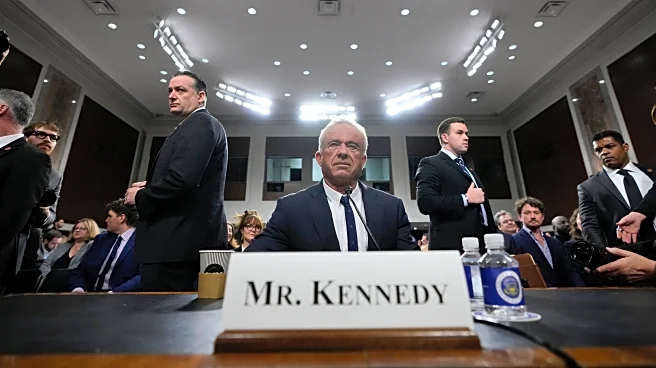What's Happening?
Bragar Eagel & Squire, P.C., a law firm specializing in stockholder rights, has initiated a class action lawsuit against Tronox Holdings plc. The lawsuit, filed in the United States District Court for
the District of Connecticut, targets Tronox for allegedly providing misleading financial projections and statements to investors. The complaint covers individuals and entities that purchased Tronox common stock between February 12, 2025, and July 30, 2025. The lawsuit claims that Tronox misrepresented its ability to forecast demand for its products, leading to a significant drop in sales and a subsequent decline in stock value. On July 30, 2025, Tronox reported a substantial reduction in TiO2 sales, attributing it to a weaker coatings season and increased competition. This announcement led to a 38% drop in Tronox's stock price, from $5.14 to $3.19 per share.
Why It's Important?
The lawsuit against Tronox Holdings highlights the critical issue of corporate transparency and accountability in financial reporting. Investors rely on accurate and honest disclosures to make informed decisions. Misleading statements can lead to significant financial losses, as seen in the sharp decline of Tronox's stock value. This case underscores the potential risks investors face when companies fail to provide truthful information. It also emphasizes the role of legal firms in protecting investor rights and ensuring corporate accountability. The outcome of this lawsuit could have broader implications for corporate governance and investor confidence in the market.
What's Next?
Investors who purchased Tronox shares during the specified period have until November 3, 2025, to apply to be appointed as lead plaintiffs in the lawsuit. The legal proceedings will likely involve a detailed examination of Tronox's financial disclosures and forecasting processes. Depending on the case's outcome, Tronox may face financial penalties or be required to implement changes in its reporting practices. The lawsuit could also prompt other companies to reassess their disclosure policies to avoid similar legal challenges.










